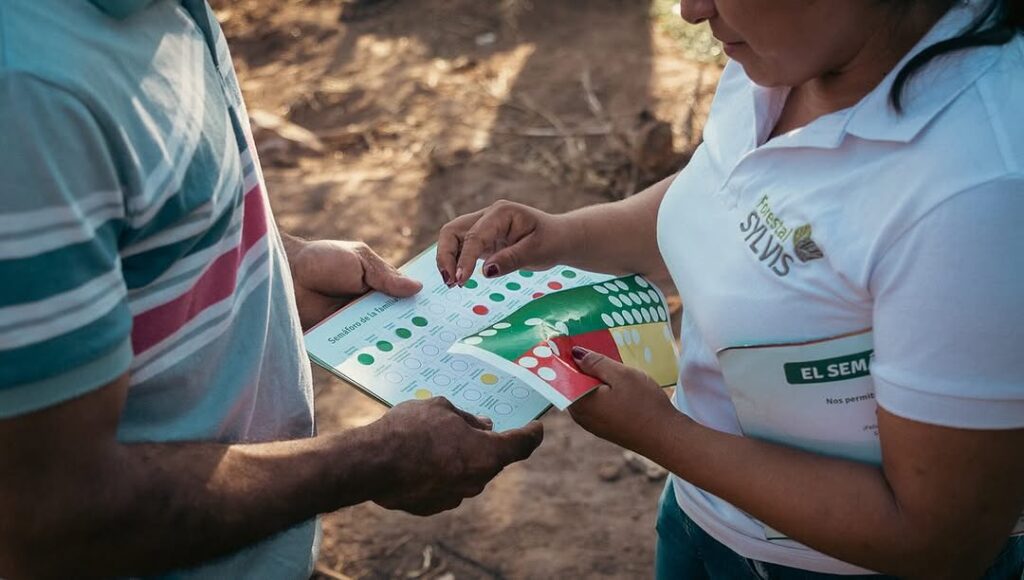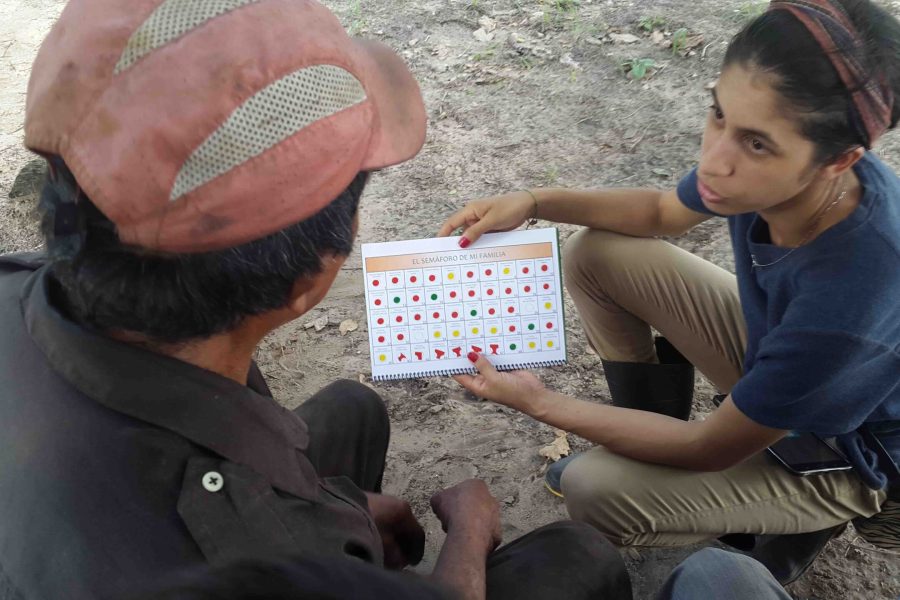
In the rural landscapes of Paraguay, where Forestal Sylvis manages its eucalyptus plantations, the company sees more than just productive land. It sees people. Families. Opportunity. And a responsibility that goes beyond business.
Since 2019, Forestal Sylvis has worked with Fundación Paraguaya to implement the Poverty Stoplight methodology in the communities surrounding its operations. The Stoplight is a participatory tool that helps families self-assess their well-being across 50 indicators, from access to healthcare and financial stability to personal development and civic participation.
This approach reflects a core belief at Sylvis: that economic growth cannot happen in isolation. If the community doesn’t grow, the business cannot thrive either. That belief is embedded in the company’s commitment to triple impact: generating economic value, creating positive environmental outcomes, and improving the quality of life of the people connected to its work.
A Ground-Level Perspective
At the heart of Sylvis’ social program is Lucía Ledezma, the company’s community extension officer. Lucía visits homes, facilitates workshops, follows up on individual family goals, and connects people with resources. Her work is ongoing, personal, and deeply embedded in the lives of the people she serves.
“Sometimes it’s not about big programs,” she explains. “It’s about asking a mother what her dream is for her kids, and helping her take the first small step.”
That philosophy is reflected in how the Poverty Stoplight works. Families aren’t labeled or diagnosed—they evaluate their own situation by reviewing simple, visual indicators grouped under six dimensions: income and employment, health and environment, housing and infrastructure, education and culture, participation, and emotional well-being.
Once the assessment is completed, each family has a personalized “life map” that guides future actions. Sylvis then supports those plans with resources, training, and coordination.

The Numbers Behind the Stories
In Corralito, Caazapá, the results from 2023 to 2024 reveal clear progress:
- A 900% increase in families who now have clear life goals.
- A 121% improvement in access to health services.
- An 86% decrease in families with untreated dental issues.
- A rise in community participation, especially among women, with training in food preparation, embroidery, financial literacy, and small-scale farming.
Thanks to partnerships with public institutions, families in Corralito started growing their own vegetables, attended first-aid and safety workshops, and even launched a community fair to sell homemade products and homegrown crops.
In Ybycuí, where Sylvis began its work earlier, the impact is even more systemic:
- A 66% reduction in high-poverty indicators since 2019.
- A 54% increase in indicators reflecting stable, healthy conditions.
- Empowered local leadership, including committees of women entrepreneurs who accessed microloans and launched businesses ranging from food production to local retail.
These outcomes are the result of long-term investment, patient relationship-building, and structured follow-up.
Shared Value and Long-Term Stability
Sylvis’ social strategy is not philanthropic. It is a business imperative rooted in the idea of shared value. A stable, empowered community provides the foundation for sustainable forestry. It reduces conflict, increases productivity, and protects long-term forest assets.
By using the Poverty Stoplight as a framework, Sylvis tracks real change. It knows where support is needed, where progress is happening, and how to evolve its approach. This data-driven model strengthens trust, accountability, and long-term impact.

Growing Together
Forestal Sylvis believes that forests should grow alongside the people who live near them. The business model only works if the communities are thriving. That’s why triple impact is not just a value statement—it’s a way of operating. Economic return, environmental stewardship, and social progress must go hand in hand.
In each tree planted, in each family supported, in each woman who launches her own business, there is a future being built. And that future is shared.


